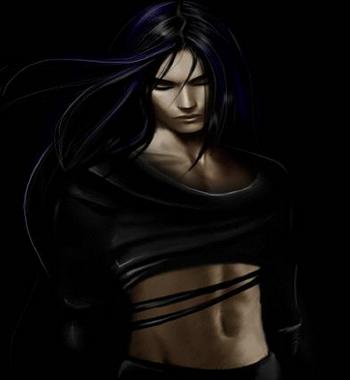
Bergman has mentioned Carl Orff's choral work Carmina Burana, based on medieval songs by itinerant musicians drifting around Europe at the time of the plagues and great wars. "What attracted me was the whole idea of people travelling through the downfall of civilization and culture, bringing birth to new songs. One day when I was listening to the final choral in Carmina Burana, it suddenly struck me that I had the theme for my next film!"
 In an interview he has also cited Picasso's 1905 painting Les Saltimbanques and Dürer's etching Knight, Death and the Devil.
In an interview he has also cited Picasso's 1905 painting Les Saltimbanques and Dürer's etching Knight, Death and the Devil.Bergman himself has always been sparing when it comes to revealing literary inspirations for the film, but several critics have named August Strindberg's Saga of the Folkungs (some were of the opinion that it was a medieval drama along similar lines to Strindberg's, whereas others saw the film as unabashed plagiarism). In an ambivalent review, Expressen's Ivar Harrie wrote that Bergman is "the Swedish champion of pretentious trash", at the same time as being a "great poet, a poet of images. [---] Bergman wants to be the play actor, the jester in the marketplace, yet do not forget that he also wants to be a popular – a very popular – revivalist. He expresses himself with equal vulgarity in both roles – and with equal authenticity.
 But the origins of The Seventh Seal can also be traced to Bergman's own oeuvre. In addition to Wood Painting Trämålning, a number of passages in his early works are reminiscent of scenes in the film. In his play The Death of Punch, for example, which he directed and staged for the Stockholm Student Theatre in 1942, there is a scene in which the principal character Punch is confronted by two men carrying a coffin. Words are exchanged, strikingly similar to the lines in The Seventh Seal where Death saws down the tree that holds the actor Skat. (This comparison was made by Maaret Koskinen in her book In the Beginning was the Word.)
But the origins of The Seventh Seal can also be traced to Bergman's own oeuvre. In addition to Wood Painting Trämålning, a number of passages in his early works are reminiscent of scenes in the film. In his play The Death of Punch, for example, which he directed and staged for the Stockholm Student Theatre in 1942, there is a scene in which the principal character Punch is confronted by two men carrying a coffin. Words are exchanged, strikingly similar to the lines in The Seventh Seal where Death saws down the tree that holds the actor Skat. (This comparison was made by Maaret Koskinen in her book In the Beginning was the Word.)Finally, the most obvious source of inspiration for this theological film par excellence is, of course, the Bible. The title itself – as so often in Bergman – is a biblical quotation, from the Book of Revelation (the film opens with the full text): "And when he had opened the seventh seal, there was silence in heaven about the space of half an hour. And I saw the seven angels which stood before God; and to them were given seven trumpets." (Revelation 8:1–2)
|








